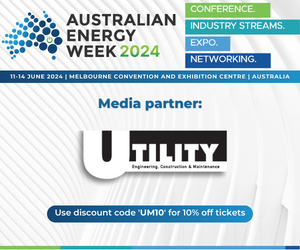The Australian Energy Market Commission (AEMC) has released recommendations for making East Coast markets more integrated, which include new trading hubs, improved information and better access to pipelines.
The recommended reform package includes establishing wholesale gas markets with trading hubs concentrated in Victoria and Queensland; improving access to pipelines; and delivering new and improved information to gas businesses.
Work is already underway on a new northern hub for gas trading at Wallumbilla in Queensland.
The recommendations for extensive gas market reform were accepted by the Council of Australian Governments (COAG) Energy Council in August 2016.
The draft final report released by the Review of the Victorian Declared Wholesale Gas Market is now open for consultation with submissions due by 2 December 2016. It is the next step in delivering the COAG Energy Council’s vision for Australia’s gas markets.
The draft final report is focused on reforming the existing declared wholesale gas market operating within Victoria to create a new southern hub for trading across the declared transmission system.
The commission’s recommendations to develop the declared wholesale gas market are to:
- Implement the new southern hub model where trading would occur on a voluntary, continuous, virtual basis regardless of location across the existing footprint of the declared transmission system
- Introduce a continuous supply and demand balancing mechanism with the system operator retaining responsibility for ensuring that system security is maintained
- Introduce explicit and tradeable capacity rights for entry to and exit from the declared transmission system
- Conduct market trials to determine requirements for and design of transitional measures that may be appropriate to help stimulate liquidity in the commodity market and mitigate the immediate impacts of changed market arrangements for gas businesses
- Integrate the oversight of implementing these reforms within the gas market reform group established by the COAG Energy Council in mid-2016
AEMC Chairman, John Pierce, said the recommendations would improve access to a reliable supply of efficiently priced gas to Victorian consumers, and maintain Victoria’s key role in East Coast gas markets as one of two wholesale gas trading hubs.
This review was requested by the Victorian Government to undertake a specific, detailed consideration of the ability of the state market’s current arrangements to facilitate the COAG Energy Council’s gas reform agenda.
The reform vision is centred on making it easier to buy and sell gas across the East Coast to lower costs and increase competition to create flow-on benefits to residential, commercial and industrial consumers.
The AEMC’s East Coast gas review also concluded that a more efficient gas market will improve the power system’s ability to integrate renewables like wind and solar.
The gas market is impacting an electricity sector which is increasingly reliant on gas-fired generation, particularly where gas fired generation is needed to provide fast-start backup for intermittent generation.
“There is a need to progress the Victorian gas market reforms in a timely manner in the face of significant structural changes in both gas and electricity sectors across the East Coast,” Mr Pierce said.
“The largely isolated point-to-point pipelines of the past are now an interconnected network, and the way wholesale gas is bought and sold needs to reflect this reality.”
“By the end of 2018 all the new LNG export projects in Gladstone are expected to be operational, coinciding with the expiration of long-term gas supply agreements which will require domestic customers to enter the market to secure new supply.
“Importantly the detailed recommendations released today are focussed on making it easier for Victorians to access alternative gas supplies from outside Victoria, enabling smoother trading across eastern Australia and increasing competition.”
The recommendations are expected to introduce more flexibility into the trading of gas, giving market participants greater ability to manage price risk and improving longer-term price signals.
At the same time, introducing explicit capacity rights for the use of pipeline infrastructure means investment decisions can be driven by market participants’ purchases of rights, reducing costs and risks to consumers in the process.
Bi-lateral contracts will remain part of the Victorian market, and proposed changes would introduce more flexibility to support the efficient exchange of gas between buyers and sellers.
The recommendations are also designed to reinforce the positive features of the declared wholesale gas market specifically the facilitation of gas retail competition and maintenance of system security.












